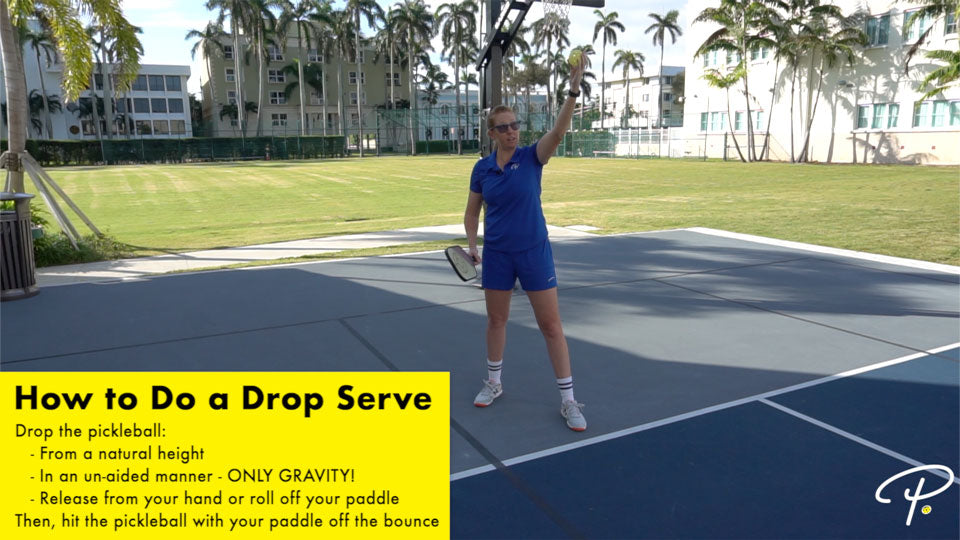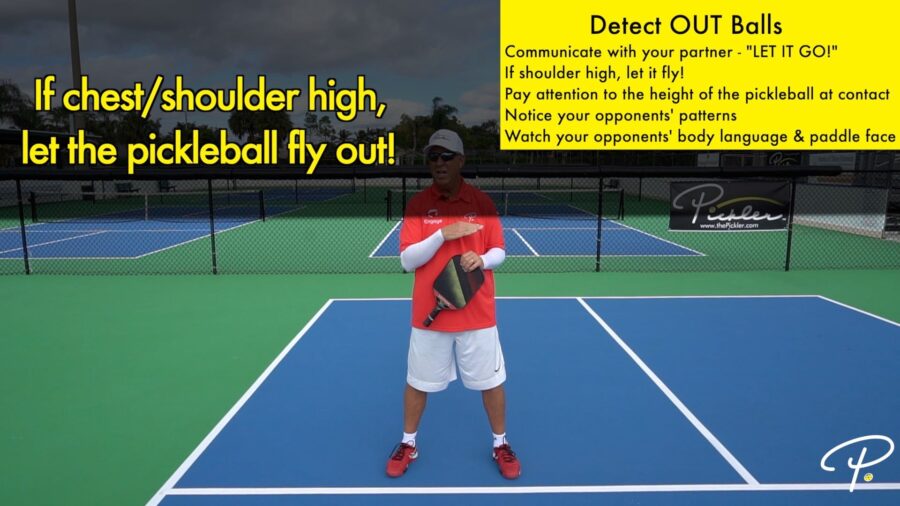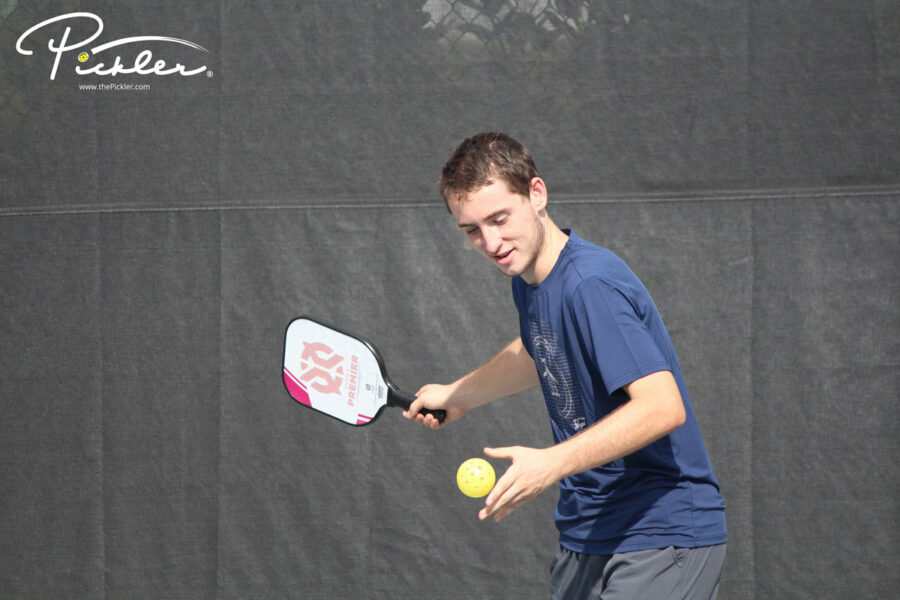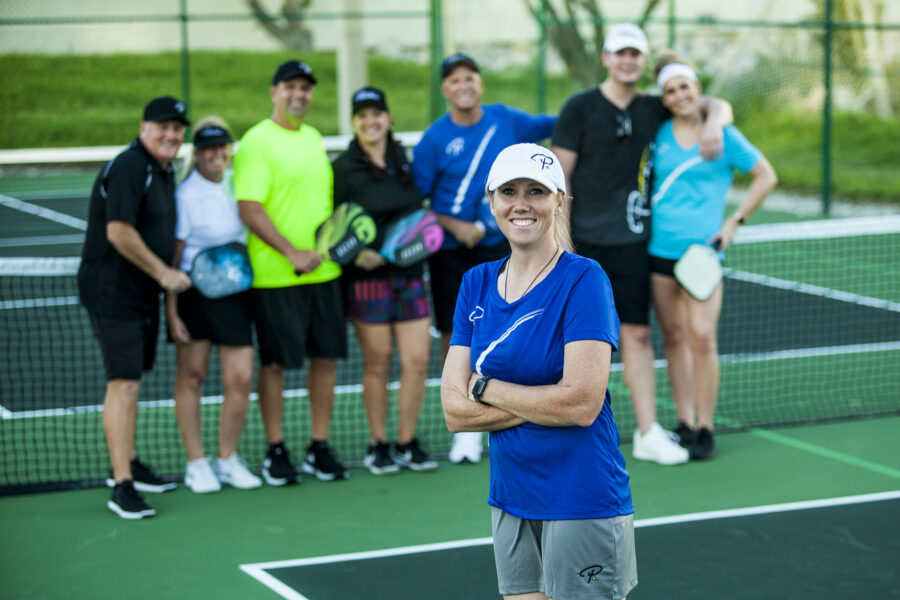The Official Rulebook is reviewed and, to the extent necessary, revised and updated every year, as pickleball rules continue to evolve as the sport evolves. As a result, it is important to stay up-to-date on pickleball rules changes so that you know the right call on the pickleball court (especially if you plan to play a pickleball tournament).
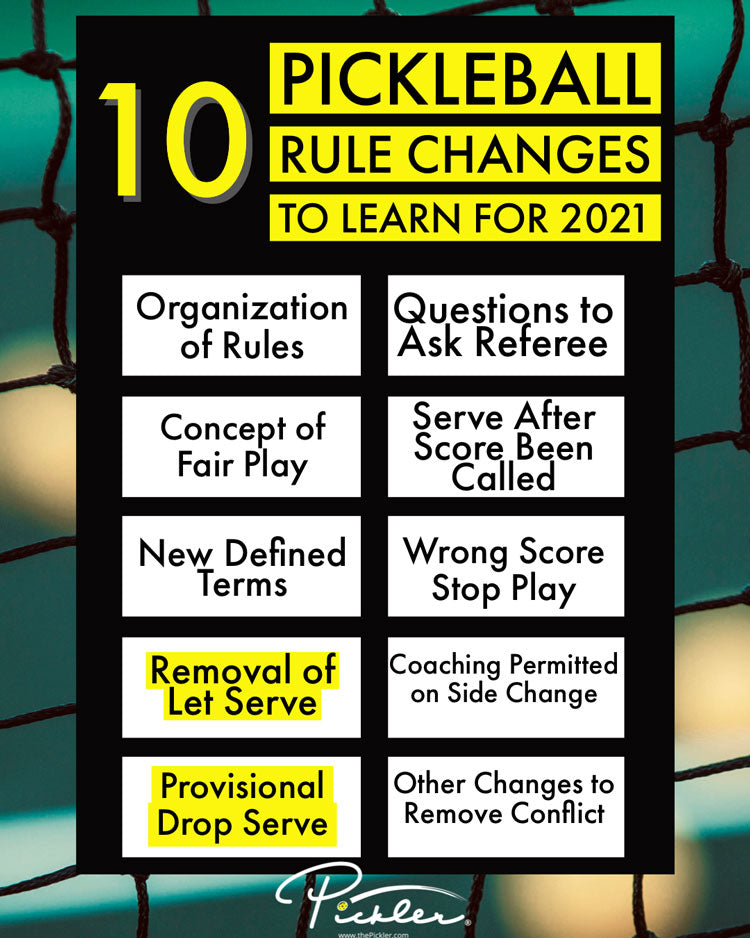
For the 2021 calendar year, there are some important additions, deletions, and other revisions to the rules of pickleball that you should be aware of. These include the following:
1. Organization of the Rulebook
In addition to the recognizable Official Rulebook, there is also an “alternate” rulebook, which re-organizes the presentation of the rules of pickleball. USA Pickleball is seeking comment throughout 2021 as to whether this alternate rulebook is more user-friendly than the Official Rulebook. Further, in some cases, some rules were moved from the Official Rulebook and placed in the referee handbook or the tournament director handbook (as applicable).
2. Addition of the Concept of Fair Play
We all know that pickleball is a sport that fosters a culture of fun and competition. To maintain this fun and competitive culture, it is important for the sport of pickleball to encourage fair play and good sportsmanship, which is why these concepts were expressly added in the Official Rulebook. Specifically:
- All points are created equal, meaning the first point and match point are equally important;
- In doubles pickleball, each partner is permitted to make line calls;
- All calls on the pickleball court should be made promptly (rather than waiting until the end of a point or after a shot to make the appropriate call); and
- When confronted with a “rule-less” situation (in other words, a situation that the Official Rulebook does not address), players should cooperate with each other to resolve any dispute, which could include a replay of the point.
3. New Pickleball Terms and Definitions
A few new pickleball terms were added to the Official Rulebook’s definitional section, which include “coaching,” “ejection,” “expel,” “plane of the net,” “retirement,” “profanity,” and “wheelchair player.” Many of these new pickleball terms were driven by pro pickleball players and their need for further detail around specific rules (especially since the pro pickleball players play with money on the line).
4. Removal of the Concept of a Let on a Serve
In the past, service lets were a part of the sport of pickleball. However, this rule has been changed to remove service lets in an effort to (1) preserve the integrity of the sport and prevent receiving teams from calling “phantom lets” on “ace serves”; (2) reduce conflicts between players or between referees and players over a let call; and (3) stop referees from performing a referee technique that some players found distracting, which was holding the pickleball net on the serve to detect lets and then stepping back out of bounds.
5. Addition of the Drop Serve as a Provisional Rule
The Official Rulebook for pickleball originally created the drop serve for players with a physical disability (for instance, any player with one arm). However, the Official Rulebook now permits this alternative serving method for all players, as the pickleball drop serve is a “provisional rule” under the Official Rulebook. This means that the pickleball drop serve is currently permitted, but may be revised or removed in the future based on its effect on the sport. To do a pickleball drop serve, you must drop or release the pickleball from any natural height, either by using your hand or letting the pickleball roll off of your paddle, and then hit the pickleball with your paddle after the pickleball bounces on the court. Learn the details of the pickleball drop serve now to add this new serve to your arsenal!
6. Revising the Questions that You May Ask a Referee Prior to the Serve
During pickleball tournament play, only certain questions are permitted to be asked to the referees on the pickleball court when it comes to the score and/or how to determine the correct score. These questions now include whether players are in the correct position – a question that was previously prohibited. As a result, players may ask the following questions prior to the serve being struck:
- The serving team may ask the following questions to the referee at any time prior to the serve:
- What is the score?
- Who is the correct server?
- Are we in the correct position?
- The receiving team may ask the following questions to the referee at any time prior to the serve:
- What is the score?
- Who is the correct receiver?
- Are we in the correct position?
7. Serves Must Be After the Entire Score Has Been Called
A server cannot make contact with the pickleball for the serve until the entire score has been called (in other words, all three digits during doubles play, or both two digits during singles play). With that said, a player could quick serve you by starting his or her serve before the entire score is called. This differs from the previous rule as players were prohibited from starting their serve prior to the entire score being called. Now, it is not a fault for the server to start the serve prior to calling the entire score. It is only a fault if the server’s paddle has made contact with the pickleball for the serve prior to the entire score being called. This change was driven to remove the ambiguity between practice serves and the start of the actual serve. To note, in officiated play (for instance, in a pickleball tournament), beware of referees altering the tempo of their respective score calling. For instance, a quick 0-0-2 compared to a slow, drawn out 0-0-2. Changing tempo in score calling may inadvertently lead to you making contact with the serve prior to the entire score being called, especially if you are tempted to quick serve your opponents. So, beware of tempo and be sure that the entire score is called before serving the pickleball!
8. If the Wrong Score Is Called, Players Have Until the Third Shot to Stop Play
At times, the server (or the referee) could call the wrong score on the pickleball court. If the wrong score is called by the server (or the referee), any player on the pickleball court can stop play, and ask for the correct score to be re-called, before the third shot of the rally is hit. This differs from the prior rule, as the prior rule only permitted play to be stopped before the return of serve (rather, than the third shot). If play is stopped before the third shot of the rally is hit, and the score was called incorrectly, then the server (or the referee) will re-call the correct score and re-serve the pickleball with no penalty. However, if a player on the pickleball court stops play after the third shot of the rally is hit, then the player who stopped play will have committed a fault and will lose the rally. In other words, you cannot raise the issue of the wrong score being called after the third shot of the rally is hit – you must challenge the issue of the wrong score being called before the third shot of the rally is hit.
9. Coaching Is Permitted When Switching Ends of the Pickleball Court
Coaching is only permitted between games and during time-outs. Coaching is not permitted at any other time during a pickleball match. The previous version of the rules prohibited coaching when switching ends of the pickleball court in game three of best two out of three to 11 points, or in a game to 15 or 21. This is because switching ends was not deemed a time-out. This has now changed in the current rules of pickleball, as switching ends is now deemed a time-out. Since the time to change ends is deemed a time-out, coaching is permitted. As a result, partners may communicate with each other or receive coaching from individuals that are not playing on the court.
10. Other Revisions to Remove Conflict Between Players and Referees
The Official Rulebook is generally revised in order to preserve the integrity of the sport for years to come and in a manner that is best for the players. The Official Rulebook is also generally revised in an effort to reduce the potential for conflict between referees and players on the pickleball court. For instance, there are a handful of revisions to change the key point in time from the calling of the score to the point of contact between the pickleball and the paddle on the serve (such as when serves may be hit, as described above). There are also a handful of revisions regarding technical warnings and technical fouls to provide more clarify on when those penalties should be imposed on pickleball players.
Looking for More Pickleball Rules?
We know pickleball rules can be tricky at times. Don’t worry. Pickler explains the ins and outs of all of the pickleball rules in a series of pickleball rules blogs to make sure that you make the right call on the pickleball court. Learn more by visiting Pickler’s pickleball rules blogs that are linked below!
- Pickleball Rules – The Ultimate Guide to the Rules of Pickleball
- 10 Must Know Pickleball Rules Before Your Hit the Court
- 10 Pickleball Rules Changes to Learn for 2021
- Pickleball Rules – Learn How to Start – 5 Things You Need to Play
- Pickleball Dictionary – Quickly Learn the Pickleball Vocabulary
- Pickleball Serving Rules – Master the Start of Every Pickleball Game
- Pickleball Scoring Rules – Learn How to Keep the Score in Pickleball
- Pickleball Kitchen Rules – Learn Important Non-Volley Zone Rules
- Pickleball Line Call Rules – How to Make the Right Call
- Pickleball Rules – Faults & Dead Balls on the Pickleball Court
- Pickleball Rules – Commonly Misunderstood Rules in Pickleball
- Pickleball Tournament Rules – Must Read Before a Tournament
- Singles Pickleball Rules – How to Play Singles Pickleball
- Wheelchair Pickleball Rules – How to Play Wheelchair Pickleball
